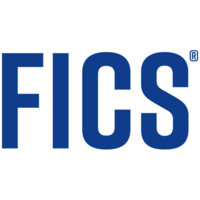
Most mortgage lenders are looking for ways to automate their operations to cut costs, maintain profitability and effectively manage their compliance and reporting to various agencies (e.g., HMDA reporting). Loan origination software automates mortgage processes, providing several benefits: greater efficiency, more seamless operations, reduced staff hours and monetary costs, and fewer errors. Application programming interfaces (APIs) and MISMO data standards help drive this automation.
APIs
APIs are software-to-software interfaces that enable applications to easily communicate back and forth without the need for direct user intervention. An API may be designed to query data or update a database, initiate a process, or add functionality to a software application. Sometimes it is easier to use an API than develop new functionality from scratch.
APIs help lenders streamline operations and improve communication, thereby delivering better customer service. They also offer convenience and time savings via workflow automation. Lenders can use APIs to automate reports and programs, thus saving time and resources, eliminating after-hours and weekend work, and reducing mistakes caused by human error.
APIs support integrations between software programs, providing automatic communication between systems. They enable secure connections between loan origination and servicing software, core systems, credit bureaus and government-sponsored enterprises, eliminating the need for manually inputting data in each system. APIs let mortgage professionals seamlessly order fulfillment services from various service providers or share data across platforms, allowing users to remain in one system to provide support to their customers. For example, an API allows lenders to retrieve mortgage insurance rate quotes from within the LOS.
LPOnline, our borrower-facing web application, allows borrowers to complete their loan application and view their mortgage information online and includes an API that displays documents from Loan Producer (our loan origination software) and Radstar (a digital imaging tool that electronically stores documents).
MISMO data standards
Most mortgage originators rely on a variety of software platforms – such as loan origination systems (LOS), document services, credit services and compliance aids – to automate the different steps of the mortgage process. Loan data must flow easily between these systems in a secure manner that protects data integrity. By building data tools using MISMO data standards, vendors significantly improve interoperability between trading partners, allowing them to interface without a hitch.
For example, one of the most important integrations a mortgage company must consider is between its LOS and its document service provider. Once the loan application is in the LOS, that platform serves as the database of record and provides the engine for underwriting, pricing, closing and secondary marketing. The document service provider must be able to read that data to produce required loan documents throughout the loan application process. This is in addition to any other services that vendor may provide, such as electronic document delivery and signatures.
Loan Producer’s document services interface enables users to order loan documents from any MISMO-compliant document service provider. Depending on the document service vendor, additional services may include ordering individual documents, document packages and compliance services; and electronic disclosures, signatures and delivery. Loan Producer supports the use of fully digital e-closings.
When it comes time to close, MISMO standards facilitate the reconciliation of certain data from the LOS and settlement services to meet regulatory requirements. A mortgage company’s LOS with a document services interface can use MISMO standards to seamlessly transfer loan data, allowing any vendor adhering to this format to interface directly to provide services to the LOS’ users.
Although each document service provider has its own system for capturing data elements and producing documents, adherence to MISMO standards makes it simple to ensure that no data gets lost between systems. This holds true for any other third-party service providers that a mortgage company may use for fulfillment services.
MISMO data standards also help mortgage companies avoid getting locked into relationships that don’t foster consistent success. Companies using loan origination software adhering to MISMO data standards have the flexibility to change vendors for the various services they use throughout their lending processes. This allows lenders to easily integrate with multiple service providers, allowing them to select the vendor who best meets their needs.
For example, if the preferred property inspectors or appraisers only work in certain geographic areas, lenders could set up other providers to handle the properties outside those areas. Lenders can also have a backup provider set up and ready to go if their primary provider can’t deliver the service due to a natural disaster or temporary service outage. When software systems use proprietary interfaces, originators are usually limited to only working with a small selection of vendors that have an existing working relationship with their company’s LOS.
Furthermore, the MISMO standards support initiatives like the new Industry Loan Application Dataset (iLAD). iLAD is designed to become the new industry standard for transferring loan application data between trading partners. iLAD is similar to the Uniform Loan Application Dataset (ULAD) but designed for the mortgage industry as a whole, not specifically for the government-sponsored enterprises like ULAD.
Loan Producer includes many interfaces that use the MISMO standards. Powered by APIs, Loan Producer’s standard MISMO interfaces make it easy to order fulfillment services – credit, appraisal, flood, mortgage and title insurance, surveys and documents – seamlessly online and from any MISMO-compliant service provider. A built-in credit interface makes it quick and easy to order credit reports from any MISMO -compliant service provider and import them into Radstar for easy reference. Credit scores and liabilities are directly imported into Loan Producer, eliminating the need for data entry and thereby increasing loan application accuracy.
Originators know that the mortgage industry is constantly changing. New regulatory requirements, investor demands and new technologies for working with borrowers crop up every year. Mortgage companies need to select the tools that help staff work as efficiently and effectively as possible.
By partnering with technology providers such as FICS that use APIs and adopt MISMO standards, lenders can utilize the technology environment that helps them remain compliant and profitable while delivering high-quality service to their borrowers.
Jeff Weinstock is vice president of Loan Producer product development at FICS.












